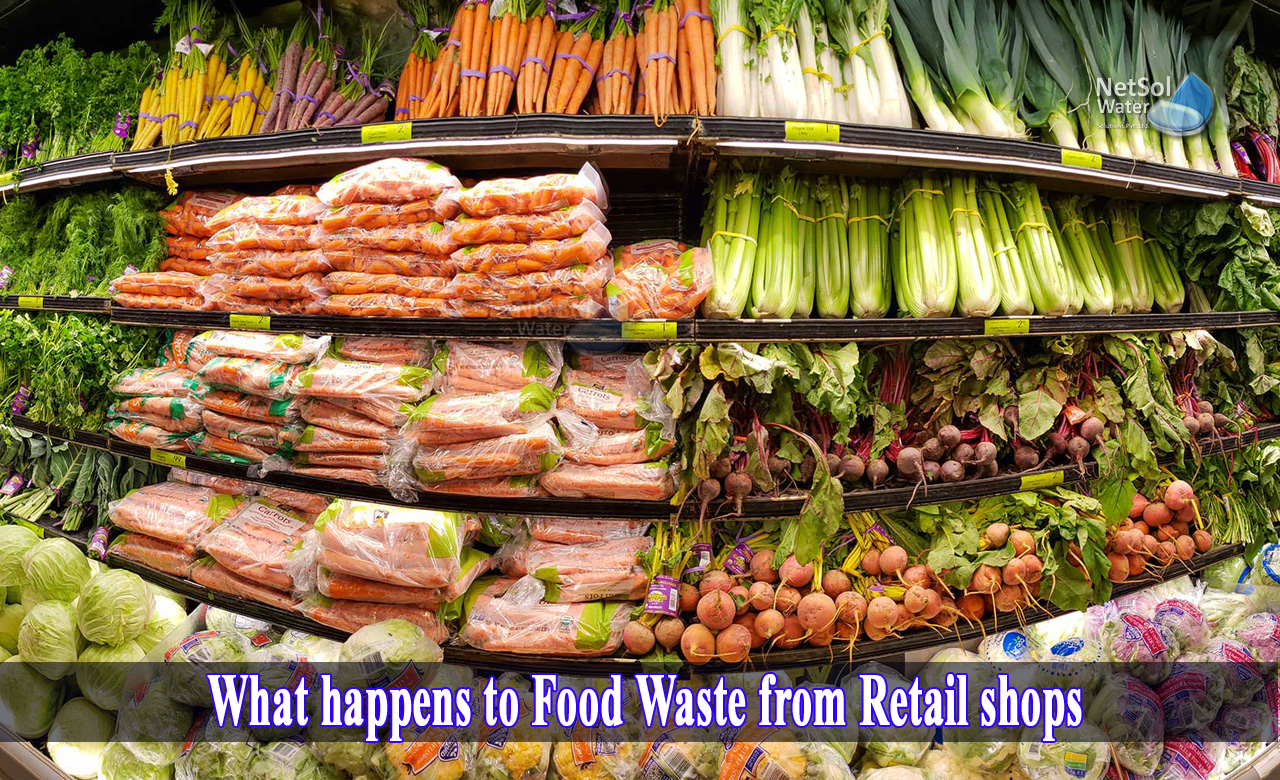What happens to food waste from retail shops?
Every year, approximately 30-40% of food in India is wasted. This large number corresponds to a large problem, with startling consequences. Food waste can wind up in landfills, where it emits methane, a greenhouse gas. Water, labour, processing, packing, shipping and storage are all resources that are used to grow that wasted food. Food waste is also a moral issue, especially in a country where 42 million people are food insecure.
Consumers and retailers account for around 31% of all food waste. Consumers usually waste food by purchasing too much and tossing it away. Grocers, restaurants, motels, caterers, and other food-related enterprises are included in the retail sector.They squander food in a number of ways, including over-ordering and discarding produce that does not have a flawless look, even if it is safe to eat.
While some of this food waste is put to good use by feeding animals, growing crops, or producing energy, the vast majority ends up in landfills. Beneficial nutrients are unable to reabsorb into the soil in this setting. Instead, food waste rots and emits methane gas, which is responsible for 20% of global warming.
Let's look at where food waste actually goes:
1: Application for land
A tiny portion of food waste is spread directly to agricultural fields, where the nutrients in the food are absorbed by the soil to enhance soil quality.Anyone who composts food at home to improve the soil in their garden understands the fundamental idea of land application. The use of food waste in this capacity minimizes the requirement for commercial fertilizers while diverting thousands of tons of organic waste from landfill.
Processing by-products such as dairy whey, the solid residue of grapes after pressing and brewery waste are the most prevalent forms of food waste utilized for land applications.
2: Combustion
Food waste is turned into energy that may be utilized as heat, fuel, or power when it is burned in controlled combustion. This is also known as "waste-to-energy." Controlled combustion involves the waste being burnt in a limited and controlled environment.This method generates renewable energy, decreases the demand for fossil-fuel-based electricity, and diverts waste from landfills.
3: Composting and anaerobic processes
Composting is the recycling of organic materials, such as food leftovers, into fertilizer. These food wastes would ultimately disintegrate, but storing them in a confined container enables for anaerobic processes to occur, producing a perfect environment for decomposition. Compost is a nutrient-dense material that is good for gardening, agriculture and horticulture.Food waste that is not separated from the waste stream for composting is disposed of in landfills.
4: Anaerobic digestion
This is a procedure in which organic materials such as food scraps, fats, oils and grease are fed to overflowing wastewater or dairy digesters.The advantage of this procedure is that it diverts food waste while also producing biogas, a sort of sustainable fuel.
5: Feed for Animals
A significant portion of retail food waste gets reused into animal feed, as farmers have done for millennia. It is a method of feeding animals that is sometimes less expensive than hauling waste to a landfill.
6: Donation of Food
Food banks receive around one-fifth of the food that retailers are unable to sell. This helps to save food that is OK to eat but would otherwise end up in the garbage since it is past its sell-by date. Many food banks and food rescue groups will gladly accept food gifts at no cost.
Conclusion
The alarming quantity of food waste created in the retail industry has no silver lining, but there is a path ahead. Companies now have the potential to move beyond standard food retail operations and embrace grocery demand planning and other waste-reduction solutions. We also have to take sustainability measures to ensure minimal food wastage by using Domestic Food waste recyclers.
If you'd like to learn more about how a Food Waste Recycler might help you transform your food waste, call on +91-9650608473 or send an email to enquiry@netsolwater.com and assist your fellows in becoming more environmental friendly!
Netsol Water is Greater Noida-based leading water & wastewater treatment plant manufacturer. We are industry's most demanding company based on client review and work quality. We are known as best commercial RO plant manufacturers, industrial RO plant manufacturer, sewage treatment plant manufacturer, Water Softener Plant Manufacturers and effluent treatment plant manufacturers. Apart from this 24x7 customer support is our USP. Call on +91-9650608473, or write us at enquiry@netsolwater.com for any support, inquiry or product-purchase related query.



